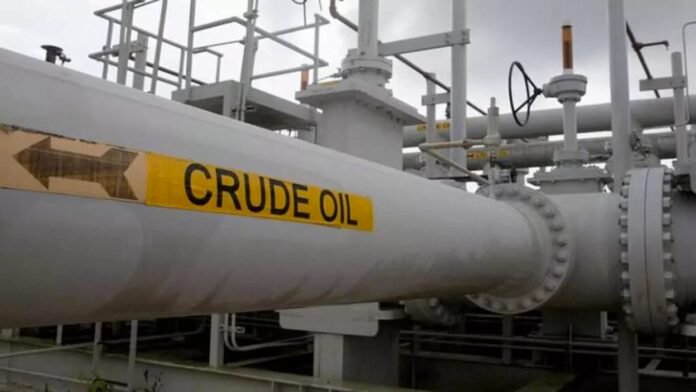The Nigerian Upstream Petroleum Regulatory Commission has disclosed that 11 crude oil cargoes offered to local refiners in a month were not taken up despite their repeated complaints about crude shortages.
The Chief Executive of NUPRC, Gbenga Komolafe, who was represented by an official of the commission, Boma Atiyegoba, made this known during a panel session at the Crude Oil Refinery-Owners Association of Nigeria summit held recently in Lagos.
According to Komolafe, while refiners had consistently raised concerns about the non-availability of feedstock for local processing, the commission’s records showed that crude oil was being made available under the Domestic Crude Supply Obligation.
Recall that the 650,000-capacity Dangote refinery has consistently decried the lack of enough crude supply to its plants. Officials of the refinery said the plant was increasingly depending on the United States to get feedstock.
In the same vein, owners of crude modular refineries repeatedly complained of crude shortages, asking the Federal Government to implement the domestic crude supply obligation as enshrined in the Petroleum Industry Act.
However, Komolafe disagreed with the claims, saying there were different reasons why refiners could not take crude from oil producers monthly.
Using April as a reference, he said 48 barrels were made available for exports, out of which 21 were reserved for local refining, but only 10 were lifted by refiners.
“I will use April to make a reference in terms of the DCSO and availability of crude to the refiners. If you look at our database, in April, we have about 48 cargoes that are available for Nigeria export. Of those 48 cargoes, 21 of them were reserved for DCSO. In the month of April, there were 48 crude cargoes; 21 of the cargoes were for DCSO, which amounts to 21 million barrels of oil. Of the 21 that were offered for DCSO, only 10 of them were taken; 11 of them did not fall through,” he said.
Explaining the reasons for the unclaimed cargoes, Komolafe said the matter was largely commercial and technical, not that the oil was not available.
“That’s why we mention the issue of willing buyer, willing seller. It is a business; you go and discuss your pricing, and the commission has decided not to interfere in the commercial pricing of your business with the operators, because we don’t want to be seen to be fixing the prices. At the point of discussion, let the willing seller, willing buyer clause come in; and you know, crude oil is an international commodity, so there are a lot of factors and indices that go into the pricing,” he said.
Komolafe disclosed that eight of the cargoes were rejected due to pricing differences and crude grade preferences among the refiners.
“We have 11 cargoes that were not taken. Out of those 11, eight of them were as a result of pricing differences, while about three of them were as a result of specifications. I can tell you that the refiners also conduct what they call refining economics, and they have preferred blends in their minds that give them yields of a particular product. Even if the government makes this product available, if they don’t need that particular grade, they will not go to buy it, but that does not mean the government is not making that product available. So, in April, 21 cargoes were offered, and 10 were taken; eight of them were not taken for price discrepancies, and three were not taken due to specification. The commission is making these products available,” he said.
![]()










